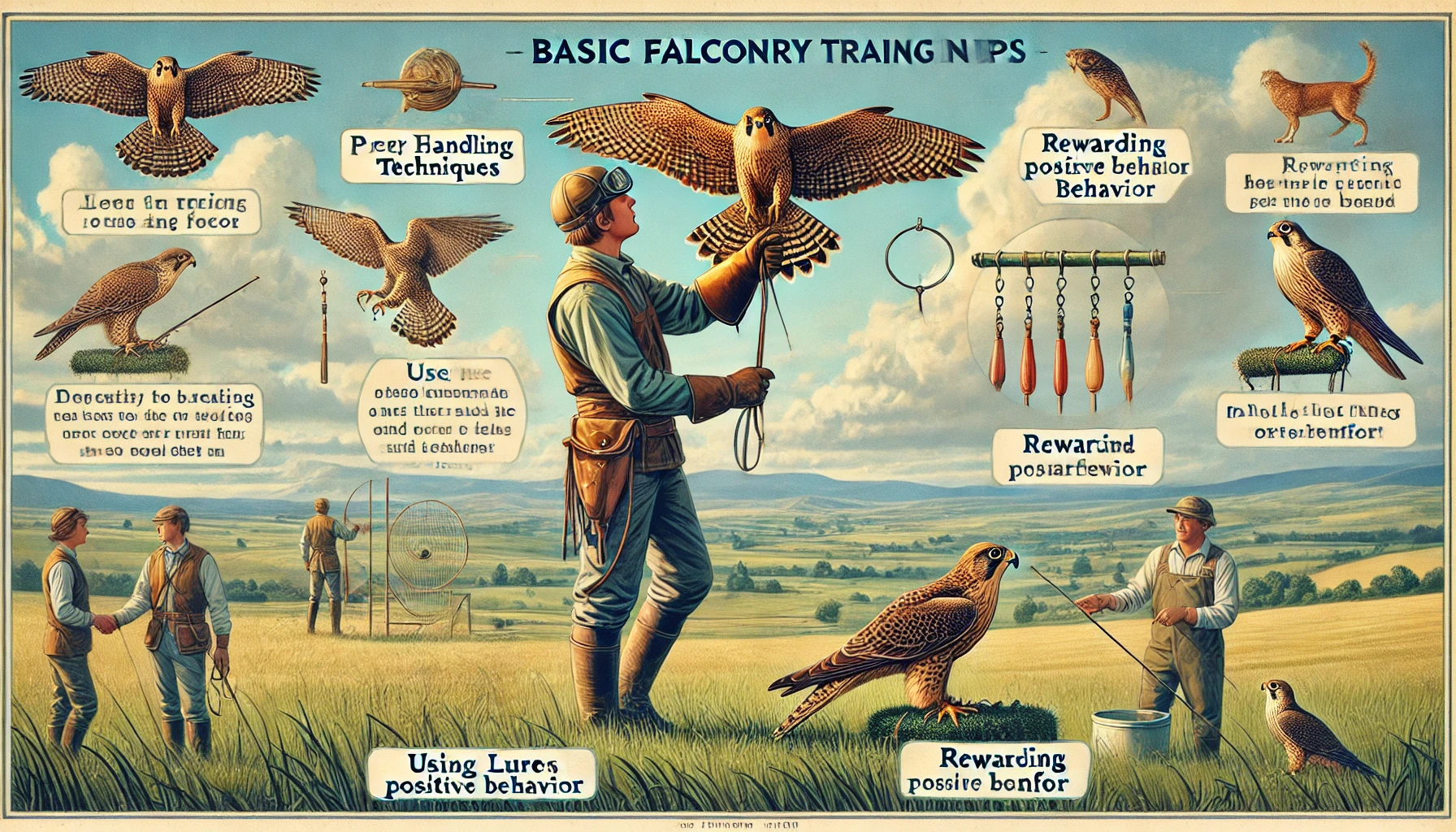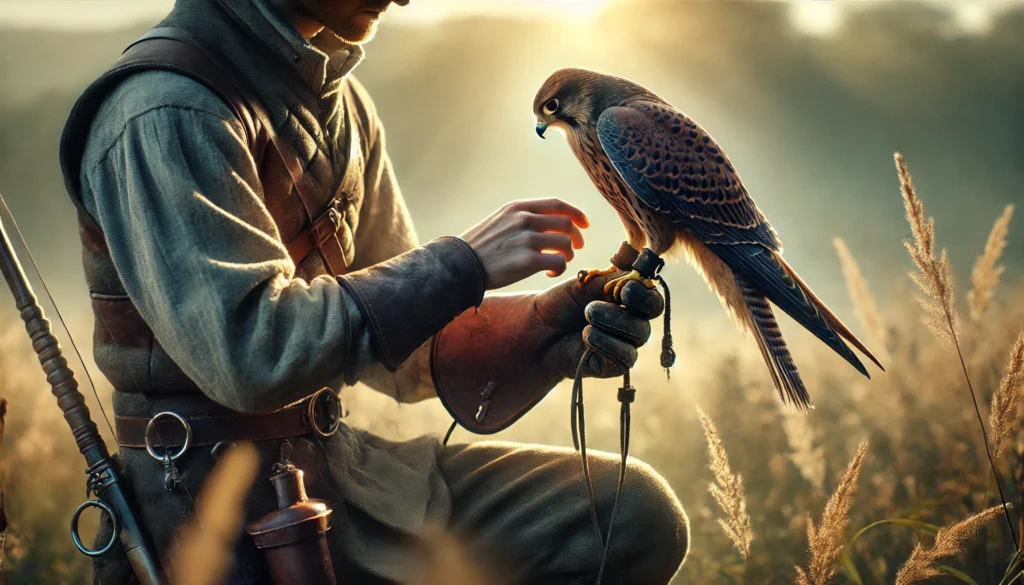Falconry, the ancient art of hunting with birds of prey, has captivated humans for thousands of years. If you’re a beginner eager to embark on this thrilling journey, you’re in for an incredible experience. This noble sport requires patience, dedication, and a deep understanding of your feathered partner. In this guide, we’ll explore the fundamental training tips that every aspiring falconer should know to start their adventure on the right foot (or talon!).
Here are the key takeaway points:
- Falconry requires daily commitment of at least one hour during daylight
- Proper facilities and space are crucial for the bird’s health
- Understanding the financial implications of caring for a raptor is important
- Legal access to hunting land is essential for practicing falconry
- Knowledge of falconry terminology and regulations is critical
Basic Falconry Training Tips: Your Gateway to an Ancient Art
Hey there, future falconer! Ready to embark on an incredible journey with one of nature’s most majestic creatures? Falconry isn’t just a hobby; it’s a lifestyle that connects you with centuries of tradition and the raw beauty of the natural world. But where do you start?
Don’t worry, we’ve got your back! This article is packed with essential training tips that’ll help you take your first steps into the thrilling world of falconry. Whether you’re dreaming of soaring with a red-tailed hawk or bonding with a peregrine falcon, these beginner-friendly tips will set you on the right path.
Here’s a sneak peek at what you’ll discover:
- The golden rules of falconry that every newbie needs to know
- How to build trust with your feathered partner (hint: it’s all about patience!)
- Simple exercises to kickstart your training journey
- Common rookie mistakes and how to avoid them
Stick with us, and you’ll be well on your way to becoming the falconer you’ve always dreamed of being. Trust me, the view from here is absolutely breathtaking!
Basic Training Tips for Beginners
Starting your journey in falconry is exciting, but it requires patience, dedication, and the right approach. Here are some essential training tips for beginner falconers:
Choosing Your First Falcon
Before diving into training, it’s crucial to select the right falcon for your skill level. Peregrine falcons and kestrels are often recommended for beginners due to their adaptability and temperament.
Starting Your Training Journey
- Manning: Begin with manning, which involves getting your falcon comfortable with your presence. Spend time near the bird, talking softly and offering treats.
- Weight Management: Proper weight management is crucial for successful training. Keep a daily log of your falcon’s weight and adjust its diet accordingly.
- Basic Commands: Start with simple commands like “step up” onto your gloved hand. Reward the bird with treats for compliance.
- Recall Training: Use a lure to teach your falcon to return to you on command. This is a fundamental skill in falconry techniques.
- Introducing Equipment: Gradually introduce falconry equipment like jesses and the hood. Let the falcon get used to wearing them.
Common Mistakes to Avoid
Novice falconers often make these mistakes:
- Rushing the training process
- Inconsistent training sessions
- Neglecting weight management
- Overfeeding the falcon
- Not seeking guidance from experienced falconers
To avoid these pitfalls, consider joining a falconry club for support and mentorship.
Training Duration
Basic falcon training typically takes 4-6 weeks, but remember that every bird is unique. Some may progress faster, while others might need more time. Consistency is key in training a falcon.
Advanced Training
Once you’ve mastered the basics, you can move on to advanced falconry techniques like hunting with your falcon. This requires additional skills and often specialized equipment.
Remember, falconry is a lifelong learning process. Stay informed about legal aspects of falconry and always prioritize ethical practices in your training methods.
Final Thoughts
Embarking on your falconry journey is an exciting adventure filled with challenges and rewards. Remember, patience and consistency are your best allies as you build trust with your bird. Start with a beginner-friendly species, invest in quality equipment, and prioritize safety for both you and your feathered partner.
As you progress, focus on mastering the basics: proper handling, effective recall training, and maintaining a healthy diet for your raptor. Don’t forget to connect with experienced falconers and join local clubs to expand your knowledge and support network.
Ultimately, falconry is a lifelong learning experience that demands dedication and respect for these magnificent birds of prey. By following these basic training tips and continuously educating yourself, you’ll be well on your way to developing a fulfilling partnership with your bird and experiencing the ancient art of falconry firsthand.



